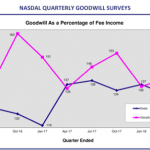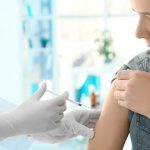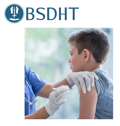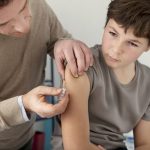You can now register your entry for the Dental Awards 2019…
The Dental Awards 2019 will take place on Friday 17 May with a sparkling gala dinner at the Hilton Birmingham Metropole, held alongside the British Dental Conference and Dentistry Show at the NEC.
Entries are now open for next year’s prestigious event, and you can register your entry for free until 7 September 2018; after this a fee of £45 will apply for each category entered. And then all Awards entries must be received by the final deadline on 7 December 2018.
So if you think that you, your colleagues or your whole team deserves the chance to be honoured at the Dental Awards simply download an entry form and put your case forward – and you could be picking up a trophy on stage at the Awards next May! Start writing your entry now to try and wow the judges with how great you are!
New award category for 2019
The 2019 Dental Awards sees the introduction of a brand new category – Best Outreach or Charity Initiative in the UK. This award recognises the special work that dental professionals and practices do to help others, whether it is one mega event or continuous work in the community. The judges will be asking, what is your initiative – your chosen cause, fundraising event or volunteering scheme – and why did you choose this? How have you made a difference to this project? What events have you held, how have you raised awareness or what support have you provided? What was the outcome?
This category sits alongside other returning categories for 2019:
Best National Smile Month Event
Dental Receptionist of the Year
Dental Therapist of the Year
Dental Hygienist of the Year
Dental Nurse of the Year
Website & Digital Campaign of the Year
Young Dentist of the Year
Dental Practice Team of the Year
Practice Manager of the Year
Practice Design & Interiors
Dental Practice of the Year
Dentist of the Year
The Dental Awards, supported by the UK’s leading dental magazine publisher, Purple Media Solutions, consistently recognise the very best in UK dentistry. Winning or becoming a finalist is a tremendous accolade and provides a massive boost to the profile of your practice. After all, who wouldn’t want to be treated by the Dentist or Dental Practice Team of the Year?
This is always a great way to thank your team and celebrate all that is best in a profession that rarely gets the full credit it deserves. Presenting the Dental Awards alongside the British Dental Conference and Dentistry Show provides a brilliant opportunity to combine attending the awards with a visit to the show, the leading CPD-led exhibition in UK dentistry.
Being a finalist or a winner can do wonders for you and your practice. So have you had a successful year, or do you have a particularly outstanding colleague or collective team? Perhaps you’ve recently refurbished your practice, you consider your online presence to be better than your competitors, or your National Smile Month campaign has been a tremendous success? Tell our judges! There are many categories at the Dental Awards that are perfect for recognising all the areas and all the roles that are essential in the efficient running of your dental practice. Previous winners have been amazed at the attention they have received from patients, the profession, local press and news programmes.
For information on how to enter, visit: www.the-probe.co.uk/awards Or, alternatively, call Linda Aitken on: 01732 371570 or e-mail: linda.aitken@purplems.com
You can send your entry by email – awards@purplems.com – or by post to – Linda Aitken, The Old School House, St Stephens Street, Tonbridge, Kent, TN9 2AD.
Important – If you plan to enter more than one award category you must submit separate entries for each category. Do not combine entries for different categories. For example, if you plan to enter the Dentist of the Year and Team of the Year categories, you need to supply a complete entry for both.













